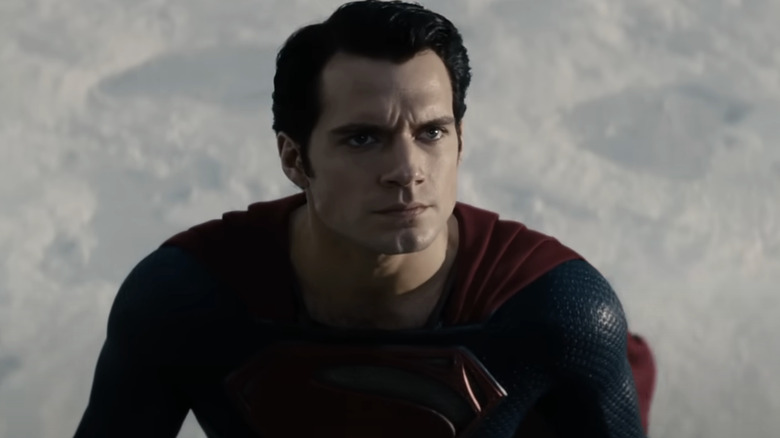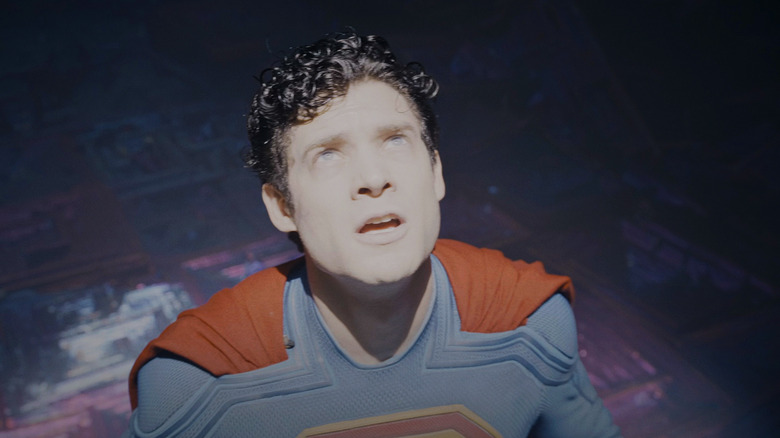On paper, James Gunn’s “Superman” has kept pace with Zack Snyder’s “Man of Steel,” but it seems that when it comes down to net profits, Gunn’s movie has Snyder’s beat. According to Variety, “Superman” is said to have generated around $125 million in profit, while Deadline reported back in 2014 that “Man of Steel” ultimately made $42.7 million for Warner Bros. It should be noted that the studio hasn’t confirmed these figures, but all signs point to “Superman” being the more profitable film.
The movie industry might be in a precarious place, but Warner Bros. is having an incredible 2025. The studio has churned out hit after hit, and while some have been bigger than others, even the modest successes have been noteworthy for helping the historic studio break box office records. “A Minecraft Movie,” “Sinners,” “Final Destination Bloodlines,” “F1: The Movie,” “Superman,” and “Weapons” have all been successes. Now, with “The Conjuring: Last Rites” breaking horror’s biggest box office records, making $83 million domestically and $187 million globally during its opening weekend, Warner Bros. is officially having a record year. As Variety points out, the studio has made box office history with seven consecutive movies opening to above $40 million.
Of course, when it comes to Hollywood accounting, it’s always tricky for outsiders to know for sure whether a movie actually made a profit or not. Aside from the fact that studios only get roughly half of the theatrical gross (less when factoring in China), there’s also the marketing costs to consider, which don’t form part of the advertised budget and are often significantly high in their own right. As such, even apparent box office successes can fail to make money, especially in an age where studios routinely green-light irresponsible budgets that kneecap their profit potential.
As the year has played out, though, it’s become clear that Warners is on a hot streak and is almost certainly making money on these movies. “Superman” is an interesting example in that regard, especially in comparison with “Man of Steel,” which, when you adjust for inflation, seems to have been a bigger movie than Gunn’s film.
Man of Steel made more than Superman, but earned less
Even before James Gunn’s movie debuted, there was a fair bit of speculation about whether “Superman” could match up to Zack Snyder’s 2013 effort “Man of Steel.” That was understandable since Warners and DC underwent a drastic overhaul that resulted in the shuttering of the DC Extended Universe, or “Snyderverse” as it became known, and the beginning of Gunn’s new DC Universe. But if the new co-head of DC Studios couldn’t make a Superman movie that performed better than Snyder’s debut Supes effort, the question would surely become, “What are we even doing here?” On the other hand, “Man of Steel” came out a full 12 years before Gunn’s “Superman,” so comparing the box office earnings was always going to be dodgy when factoring in inflation and the general state of moviegoing in 2025.
Still, comparisons were always inevitable, particularly because Snyder’s take on Superman launched the erstwhile DCEU, and Gunn’s movie was doing exactly the same for the newly minted DCU. The Henry Cavill-led “Man of Steel” ended up opening to $116.9 million and ended its box office run with $668 million worldwide. That was against a massive $225 million budget — the same amount the Warners spent on Gunn’s 2025 movie.
When “Superman” hit theaters on July 11, 2025, it soared to a $125 million opening, slightly outdoing “Man of Steel.” But when you account for inflation, “Man of Steel” jumps from a $116.6 million opening to a $160.5 million debut in today’s terms. Likewise, its global box office take of $670.1 million would be $924.55 million adjusted for inflation. While Gunn’s “Superman” certainly saw major success at the global box office, with a $614 million final tally, it would seem as though it wasn’t quite as big a movie for Warners as Zack Snyder’s 2013 effort, especially when you adjust for inflation.
But based on recent reports, it seems that Gunn’s film was actually more profitable than its predecessor. How? Well, explaining that one requires a quick excursion into the murky swamp that is Hollywood accounting.
How did Superman make more than Man of Steel?
Variety’s claim that “Superman” made $125 million in profit is yet to be confirmed by Warners, but given the film needed to make around $500 million to break even (unless the marketing spend was exorbitant) and ended up with $614 million, the math checks out — especially when you factor in the still ongoing digital sales. Still, we don’t know how much the studio spent on marketing the film, and given that these “print and advertising” costs can sometimes run as high as half the budget of the film, “Superman” might well have cost Warner Bros. somewhere in the $325 million range.
But let’s say Variety’s figure is accurate, how can a film that made slightly less than “Man of Steel” be more profitable? Deadline’s claim that Zack Snyder’s film ultimately made $42.7 million for Warner Bros included the caveat that the final spend was actually closer to $258 million plus an additional $58 million that was paid out to multiple contributors from producers Christopher Nolan and Jon Peters to stars Henry Cavill, Kevin Costner, Russell Crowe, Amy Adams, producer Charles Roven, director Zack Snyder, and DC Comics. All of which is thought to have contributed to “Man of Steel” costing more than advertised and ultimately making comparatively less than “Superman” in terms of net profits.
That said, it remains somewhat of a mystery how the movie box office actually works, given the dodgy accounting practices of these studios. Often, companies will do everything they can to reduce net profits to ensure they don’t have to pay residuals, including paying their own divisions for marketing and distribution costs to increase the cost of the movie without actually increasing their spend. It’s part of the reason why box office smashes such as “Batman” likely never made a profit (though much of that was down to Jack Nicholson’s absolutely insane back-end deal). As such, these claims about profits should always be taken with a grain of salt, especially with Warner Bros. keen to make “Superman” seem like a success in every way it can ahead of more DC Universe movies arriving in the near future. For now, though, it certainly looks as though Gunn’s cinematic universe is off to a strong start.


